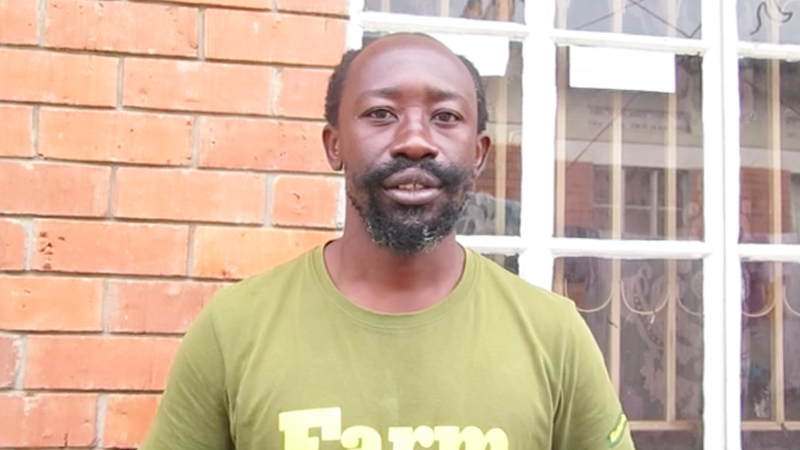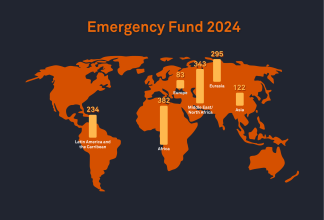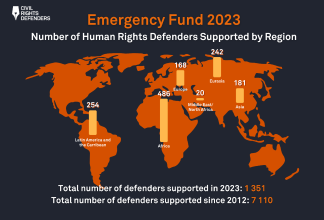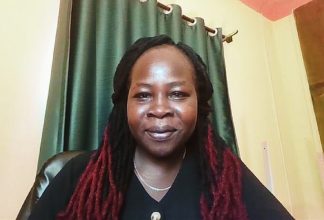Ugandan Journalist Receives Emergency Support After Brutal Assault by Police

During the spring of 2020, attacks against journalists covering the enforcement of Covid-19 related restrictions were on the rise in many regions in the world, including Southeast Asia, East Africa, and Latin America. Among the victims of police assault was Perez Rumanzi, a Ugandan journalist covering human rights abuses in the country. After a violent incident, where he was beaten by police and security forces, he received support from Civil Rights Defenders’ Emergency Fund.
We received reports in April that dozens of Ugandan journalists in line of duty were assaulted by authorities. Perez Rumanzi, who has spent most of his career uncovering human rights abuses such as unlawful arrests, torture, election violations, and gender-based violence, faced police brutality first-hand on 1 April. Perez witnessed how Ugandan police and security forces used excessive force to uphold the newly introduced curfew.
“People were trying to run for their lives and police officers and army officials were running towards them beating whomever was on the road,” said Perez Rumanzi.
He also witnessed how police and army officials targeted Kenyan trailer drivers who were sleeping in their trailers at the side of the road as other accommodation options had been closed down because of Covid-19.
“The police and army officers were beating them up and picking money from their pockets leaving them to run. I took some of these pictures,” said Perez Rumanzi.
Perez, who was accredited to be out in the street to cover the situation, documented the violent interactions with his key journalistic tool – his camera. Approximately 30 minutes after curfew entered into force, Perez was called over by a group of police and security officers. The officials demanded that he would erase the photos he had taken. When Perez refused, he was kicked and beaten with sticks and electric insulators.
“I was hit several times with sticks and brows on all parts of my body. I have standing injuries, but I am fortunate that the internal organs were not damaged. It is unfortunate though that the police said they would not enter my assault case,” said Perez Rumanzi.
Aside from the brutal assault that left Perez hospitalised, his camera was confiscated. When he went to retrieve it from the police the day after the assault, he found that the lens had been destroyed and all photos deleted.
“This shows that while multiple assault offenses were committed that evening, no one had been allowed to report a case there,” said Perez.
When a situation escalates and the need for support is urgent, Civil Rights Defenders’ Emergency Fund can provide assistance. In the case of Perez, he applied for support to improve security, which included purchasing press jackets for him and his colleagues to help them stand out in crowds and reduce the risks of being assaulted in line of duty. He also sought support to restore his camera after it had been broken by the police officers. Without it, he would not be able to continue his work in covering the ongoing abuses, which he is determined to do despite recent assaults. Perez Rumanzi was granted support in May 2020.
Aside from preventive security measures, support can also be granted to cover legal fees after arrests or court proceedings, support to imprisoned human rights defenders, or support to seek international protection. We also offer security training and psychosocial support. Temporary relocation is an important last resort for human rights defenders at risk who have exhausted all other options.

“One of the key objectives of the Emergency Fund is to give human rights defenders the kind of support that makes them able to continue their important work. We are very happy to hear that Perez Rumanzi has continued his journalism after he left the hospital and received support from the Emergency Fund. We condemn the brutality he faced and hope that he will not receive the same treatment by authorities again,” said Zinaida Muradova, Emergency Fund Protection Officer at Civil Rights Defenders.
In 2019, 547 human rights defenders and their families received support from our Emergency Fund, the majority of whom work in Africa. More than 92 percent of all grantees were able to continue their work after receiving support. Read more about the Emergency Fund here.


